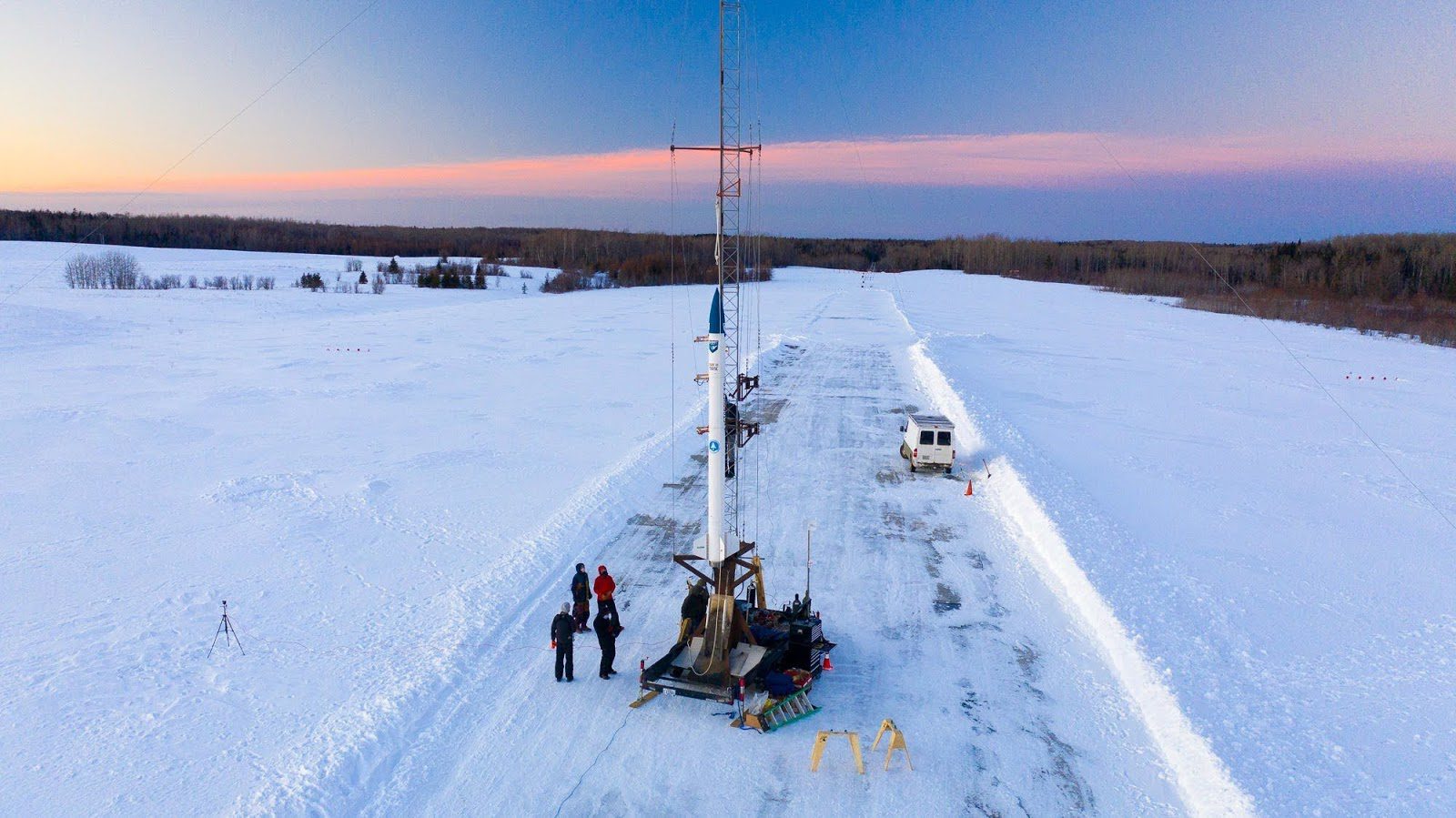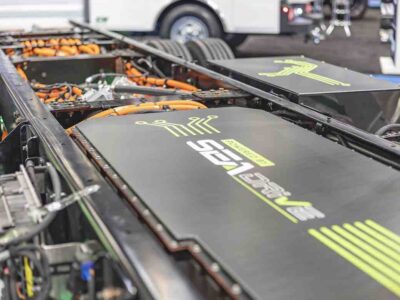As the Stardust 1.0 rocket stood on the snow-packed launchpad in Brunswick Landing, the anxious crowd waited. With the words “Made in Maine” boldly printed on the rocket’s nose, the team at bluShift Aerospace wasn’t certain their rocket would achieve lift-off on that day. Freezing conditions well below zero wreaked havoc on some of the electrical equipment. However, as the sun dipped low in the cold, clear sky, the countdown began. With a flicker of smoke and a plume of fire Stardust 1.0 soared into the sky, and made history as the first successful bio-derived commercial rocket launched in the world, as well as the first commercial rocket launched in Maine. As Stardust 1.0 blasted into the sky, the team at bluShift earned their place as pioneers of the sustainable aerospace industry. The rocket surpassed expectations before landing back on earth where it was recovered by a snowmobile team.
“The launch was an unprecedented success for the first flight of a new technology,” Seth Lockman, bluShift director of communications, shared with The Business Download. “We’ve completed our review of the telemetry and it was nominal. We inspected the rocket and it is in excellent condition. Our next step is to fly much faster and higher with Stardust 2.0.” The Maine-based startup is made up of rocket scientists and enthusiasts, hoping to make an impact in the burgeoning nano-launch market, a growing aerospace sector expected to soar into a $28 billion industry by 2030. bluShift believes they can be one of the first companies to establish themselves in that explosive market, and they’re doing it with a non-toxic, bio-derived fuel that’s actually cheaper than traditional hybrid rocket fuels. So how did they stumble onto this miracle fuel?
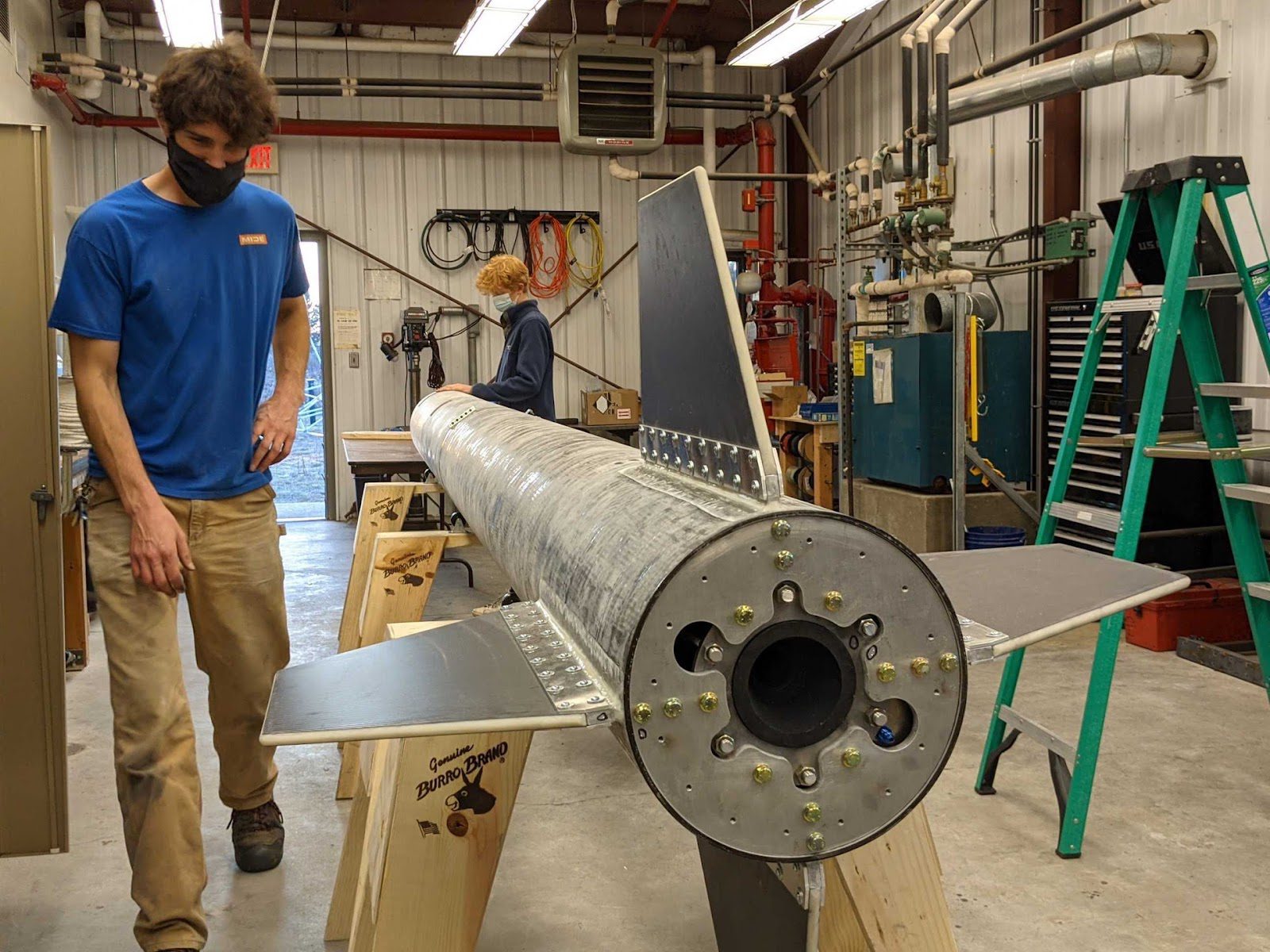
“He [Sascha Deri, bluShift CEO] would come up to the family farm in Maine and test hybrid rockets, kind of as a hobby, but also as an experiment in environmental responsibility,” Seth explained. “I don’t know if six or seven years ago he knew about some of those stratospheric market predictions for nano-launches, but we’ve known for decades that eventually rocket launches are going to become more commonplace. A few years ago their environmental impact was almost a novelty on the scale of human civilization, but that is changing as essentially shipping volumes increase. We have an emerging industry, and we have an obligation to offset its carbon footprint.” While larger aerospace companies like SpaceX and Blue Origin focus on reusable components and shipping volume, Sascha believed he could find rocket fuel with far less of an impact on the environment.
“So he [Sascha] was trying different bio-derived formulations and just iteratively testing them in a small hybrid engine,” shared Seth. “In one of these tests, he stumbled upon something that actually outperformed modern synthetic solid fuels for hybrid motors. That was unique even among eureka moments because it’s incredibly rare to stumble upon a better way of doing things that is also cheaper and better for the environment – that’s what he landed on.” Although the team at bluShift cannot say exactly what the fuel is, it is readily available around the world, and even grows in Maine at a near net-zero carbon impact. “The fuel is more energy-dense than the industry standard. It has more calories per kilogram,” Seth continued. “It’s cheaper to produce –– fewer dollars per kilogram than comparable solid rocket fuels that would go in a hybrid engine.” This explosive discovery launched Sascha into action and soon bluShift was born. After more testing, the young CEO began looking for a place to launch his bio-derived rocket.
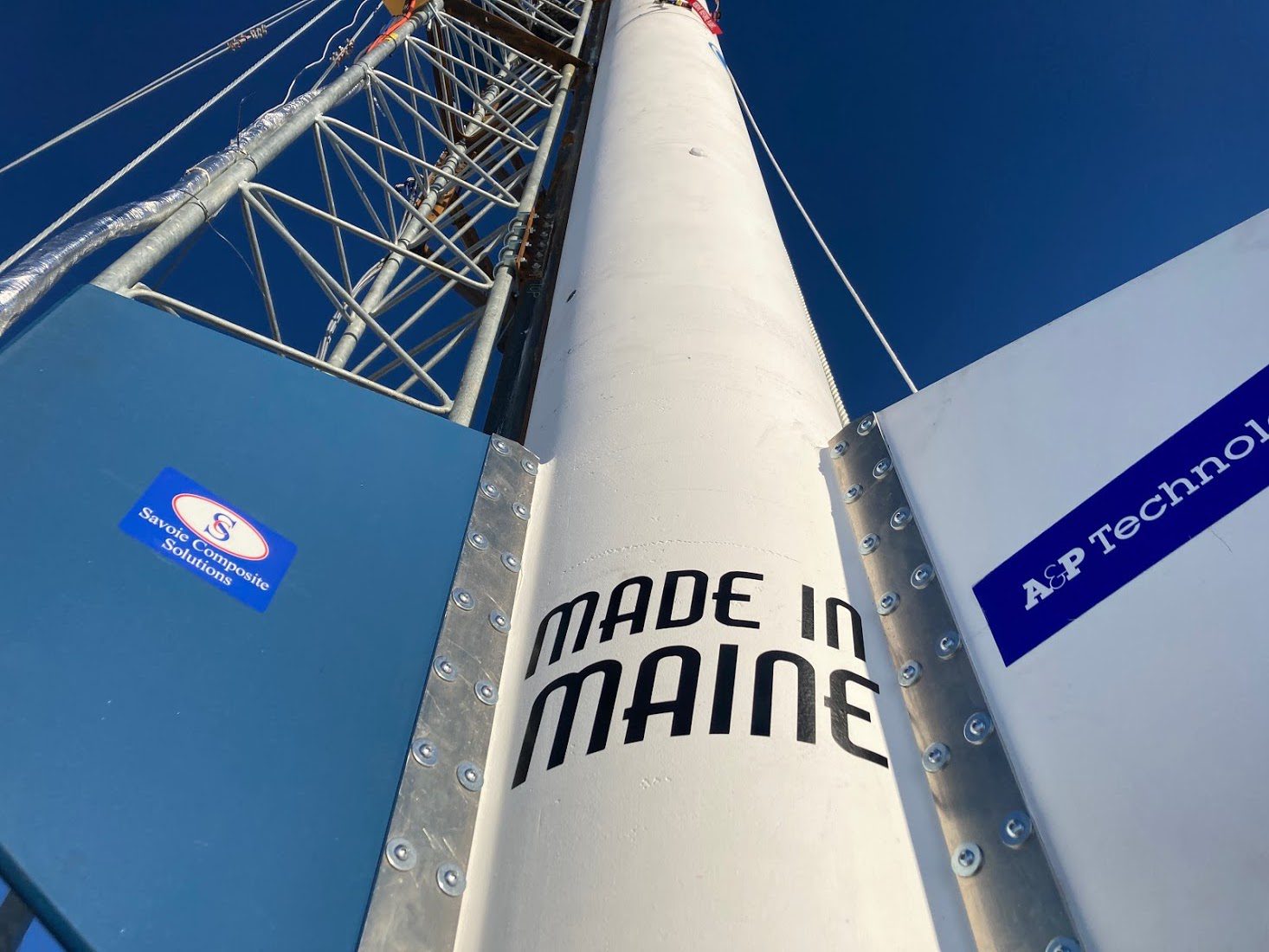
“Sasha was living in Massachusetts when he got to a point where he needed to test an engine, and he couldn’t find a place in Massachusetts,” Seth said. “So the Maine Technology Institute was offering seed grants to tech companies coming to Maine, and so he was able to bring the company north and return home. We got an office at TechPlace which is an aerospace business incubator at the Brunswick Landing, which is the revitalized Naval Air Station.” At Tech Place, bluShift found its home, and the team grew as the rocket became a reality. “It’s been about, first optimizing the bio-derived fuel,” Seth explained. “Then refining the engine design, and then taking that test engine, putting it in a rocket, and demonstrating that bluShift can fly commercially.”
Once they’d developed a stable bio-derived fuel, the team was awarded a Small Business Innovation Research grant from NASA and worked day and night refining their hybrid engine. With the Hybrid engine “we’ve got kind of the best of both worlds,” said Seth. “We have the energy density in the fuel of a solid motor, and then with the liquid oxidizer, we can throttle the engines. We can start and stop them again if we need to.” After months of testing, bluShift achieved a stable, working engine, and now they knew they needed to show the world.
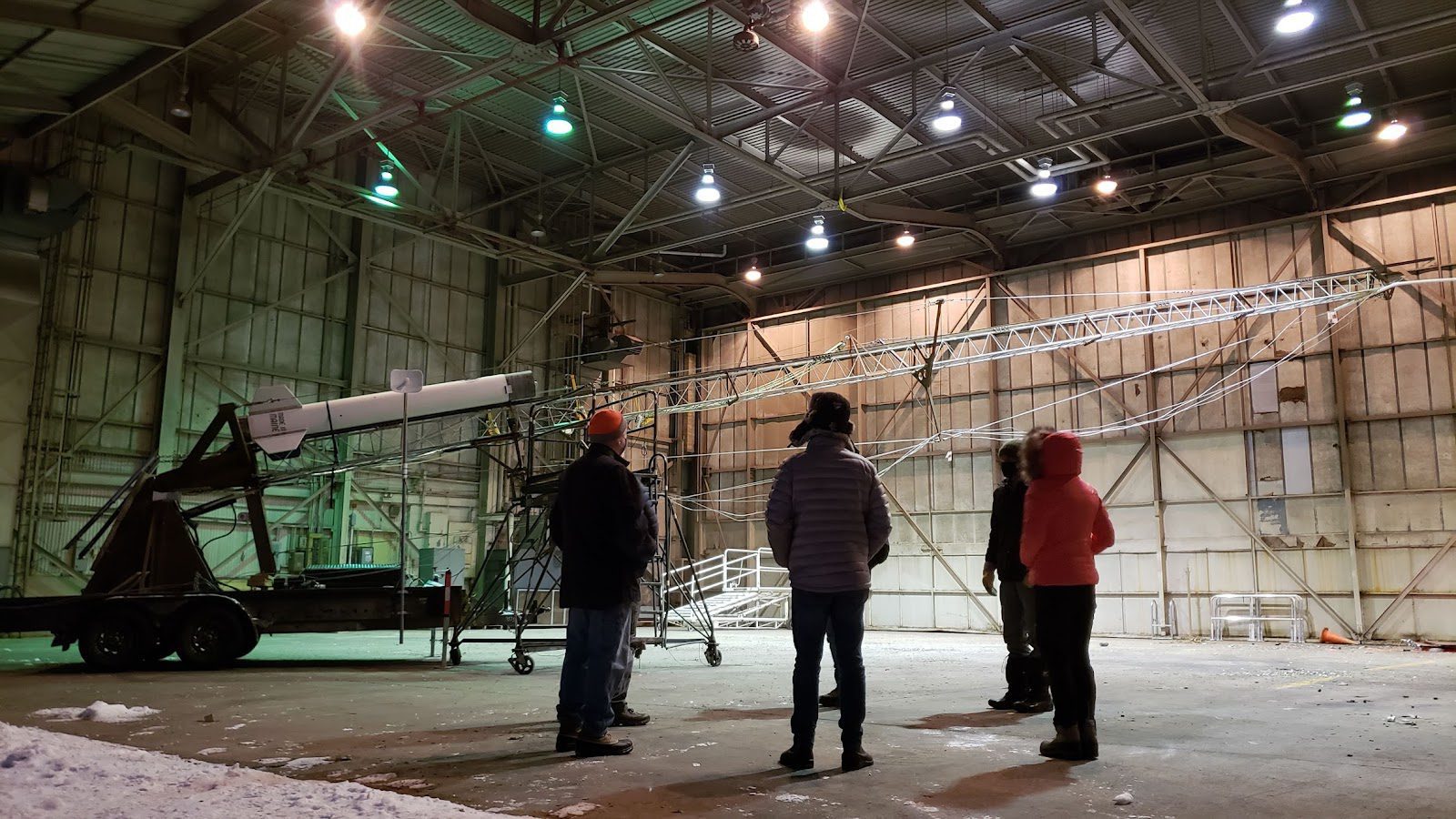
“For expediency in building Stardust 1.0, we took our test engine, which is very robust, that thing spent months outside in the cold and the wind and the rain, and therefore it was much heavier than your standard flight engine,” Seth explained. “So we took that engine and just put it in Stardust 1.0 because the main purpose of the mission was to demonstrate the bio-derived fuel and the hybrid engine in flight. We weren’t trying to set any altitude or speed records, though we did make history as Maine’s first commercial rocket launch and the world’s first commercial rocket launch powered by a bio-derived fuel.”
The result for bluShift was an undeniable success, but the team isn’t resting on their laurels; they are moving right on to the next big project, Stardust 2.0. “Stardust 2.0 is going to accelerate much harder, it’s gonna go much higher, and we are really excited that in the coming weeks we will have renders to share with the public,” Seth said. “Stardust 2.0 will fly our full-scale hybrid rocket engine. The engine will be modular, so depending on the mission we might assemble the engines grouped in clusters or vertically in stages. We also want to develop a full-scale payload bay. Ultimately we want Stardust 2.0 to reach space.”
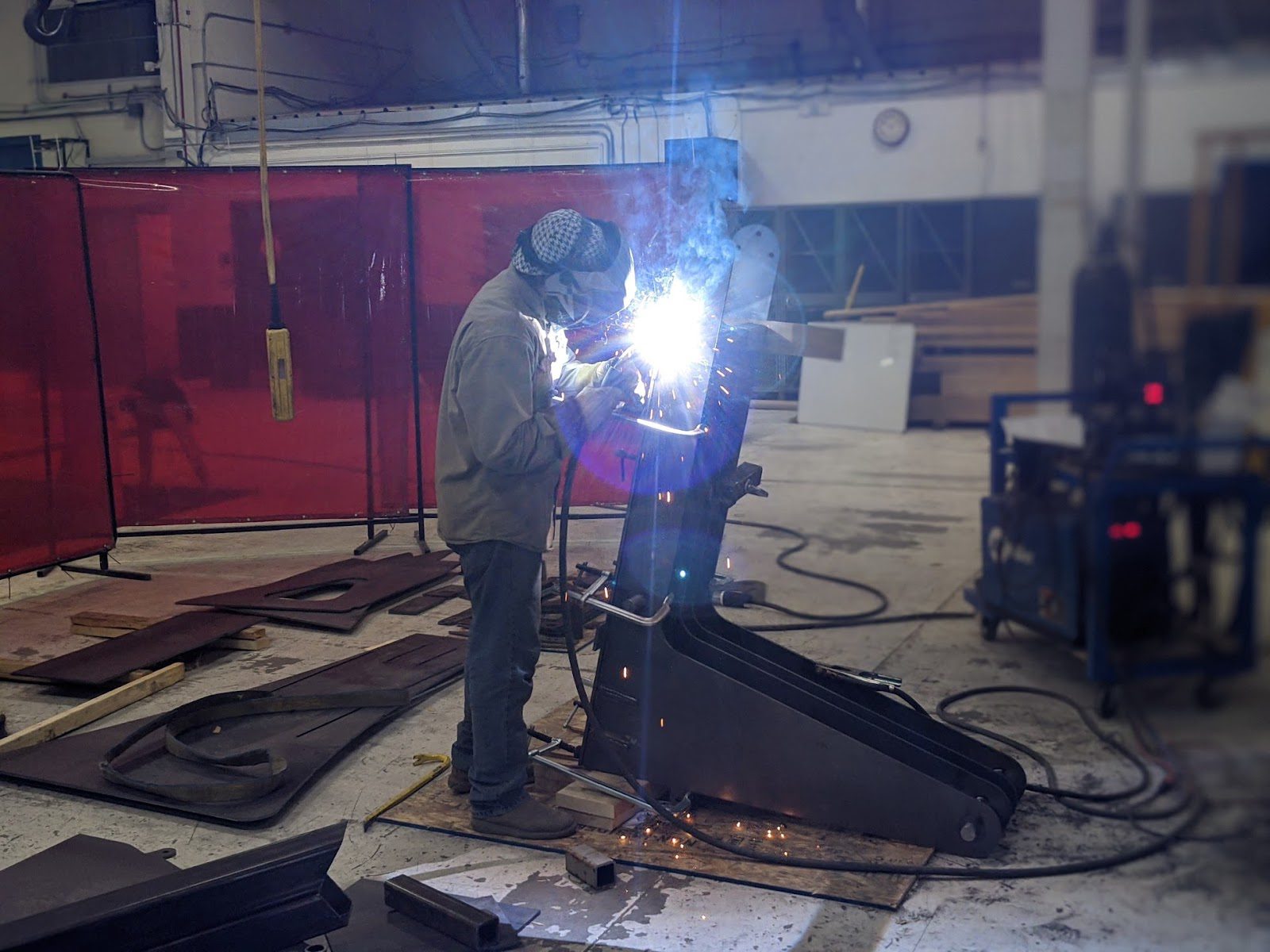
The reason for their expediency is due to a new space race taking off across the country. “There’s something like 140 of these nano-launch companies all competing and coming up with innovative ways to reduce the environmental impact of rockets,” Seth explained. “We’re definitely excited to be leading the pack right now, but we’re also excited to be part of this larger movement.” The burgeoning nano-launch industry has multiple states and companies vying for a slice of the proverbial aerospace pie, and bluShift has been extremely vocal in its support for a Maine Spaceport that would bring billions of dollars to the area as well as tens of thousands of jobs. They make a pretty good case as well, Brunswick Landing already has millions of dollars worth of infrastructure in place that would be necessary for a spaceport. Repurposing the existing infrastructure could lead to a massive return on investment for the people of Maine.
For their own part, bluShift is looking to expand their small team rapidly. They hope to create 40 new aerospace jobs in the next five years, and that’s largely due to the successful Stardust 1.0 launch, and the fact that they are in the perfect position to dominate the burgeoning nano-launch market. Within the state of Maine, there is already a rich aerospace industry and academic institutions that are looking to spend money for access to lower orbits. The team at bluShift is committed to clean, sustainable aerospace but also to supporting their home state of Maine. “We want to launch in the state, and we want to focus on launching academic payloads suborbital and into polar orbits,” Seth said. “We’re from Maine, we want to stay. We want to create jobs here.”

